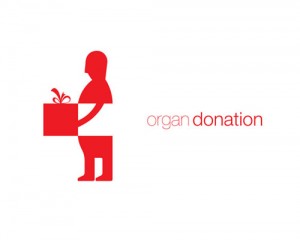The Uniform Anatomical Gift Act (UAGA) authorizes the indication, either in a will or on a driver’s license, of a desire to donate one’s organs or body post mortem to act as a legal document. It is crazy to think that any form of legal documentation not be honored and upheld in American society, but apparently it is not uncommon for doctors or even the Organ Procurement Organization (OPO) to allow the family to act against the expressed wishes of the deceased. According to the UAGA, if a person has indicated their preference to be an organ donor, legally, the family has no say in the matter. So, why is such a decision, one made autonomously and ethically accepted as to be respected, so easily overruled at times? D. W. Donovan, a chaplain and vice president for mission and spiritual care at Providence Regional Medical Center in Everett, WA, claims that it is common practice to grant families the ability override previous declarations made by the deceased and offers three reasons for this in his article Defending the Donor’s Decision.
Although a doctor or OPO official have no legal reason to honor or even consider a family’s request to override the wishes of the deceased in regards to donating their organs, Donovan points out that it “can often leave medical personnel caught in the middle of an emotionally charged event” and put them in an awkward position when confronted by an “angry family member who is strenuously opposed to donation” (1). A study conducted in 2001 indicated that only 8% of OPO’s were likely to procure the deceased’s organs if the next of kin objected (1). Respecting a family’s overriding wishes, spares the doctor and the family member’s emotional distress presented by the situation.
Refusing to appease a grieving family member’s desire to keep their deceased love one “whole” or in-tact can have negative repercussions on the health facilities and is another reason that Donovan offers as to why we give in to family member’s requests. Although supporting a person’s decision to be an organ donor is an act of respect for the patient’s autonomy, it can be perceived alternately by the public as an “invasion of privacy and bodily integrity” and can result in poor public perception of that medical facility which is something that doctor’s would obviously want to avoid.
The third reason Donovan offers is that many regard a person’s choice to be an organ donor to not be an authentic autonomous decision. Miller’s article (that we read the other day) listed 4 qualifications for a decision to be regarded as autonomous: free action, authenticity, effective deliberation, and moral reflection. The choice to become an organ donor or not is made by checking a box at the DMV that literally just asks you if you want to be an organ donor. There is no explanation of what that entails, how the process works, how the organs will be procured, etc. Surely Miller would say that this is not a truly autonomous decision. Without any information about risks, benefits or alternatives to consider, how can one actively participate in effective deliberation even if it is a choice free of coercion and true to one’s generous disposition?
Are these common arguments enough to grant a family paternalistic authority over the body of a deceased loved one? I think it’s important to realize that emotions over the loss of a loved one often cause family members to act/think irrationally which certainly should at least prompt discussion of its own to determine whether decisions made in such emotional states can even really be consented to as autonomous.
1. http://www.chausa.org/publications/health-progress/article/march-april-2008/defending-the-donor’s-decision
